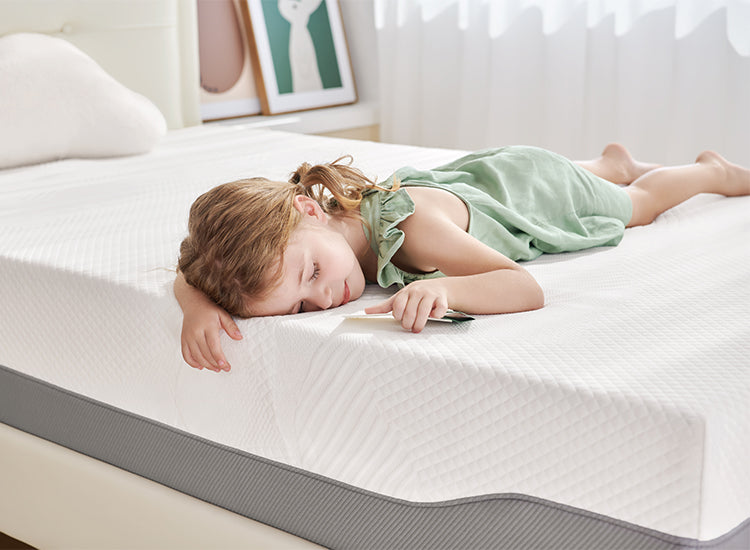No Products in the Cart

Best Bedtime for Your Child
Children need to get adequate sleep as their bodies and minds grow. However, many parents might still be unsure about the bedtime for their child. When is the right time to tuck in your kids so that they and you can wake up refreshed, not groggy from restless sleep or roused too early? The optimal bedtime enables both children and parents to sleep soundly through the night. After you read this article, let's unravel the mystery of bedtimes that work for the whole family!
Why do bedtimes matter?
If a child does not get enough sleep for a certain period and goes to bed after 11 p.m., the biorhythms of hormone production are disrupted. In turn, this leads to disruption of the immune, nervous, and digestive systems. Children become more excitable, do less well in school, get sick more easily, and are also susceptible to respiratory infections.
-- Moniki Elena Meskina, Professor of Pediatrics
I believe we can all agree with the idea that sleep is essential for healthy development. Children who get enough quality sleep tend to perform better in school, have better memory and concentration, and maintain a healthy weight. Maintaining a regular bedtime routine is important to ensure that your child gets enough quality sleep.

What is the ideal bedtime?
Know how long your child needs to sleep
In general, children need the longest amount of sleep in their lives. And the number of hours of sleep needed gradually decreases with age.
● Children under one year old need 12-17 hours of sleep.
● Children 1-2 years old need 11-14 hours of sleep.
● Children ages 3-5 need 10-13 hours of sleep.
● Children 6-13 years old need 9-11 hours of sleep.
What time should I let my child go to bed?
The ideal time for a child to go to bed at night is considered to be 18:00-20:30, which lasts for up to 5-6 years. --Natalya Domres (pediatric sleep consultant, neurologist)
Perhaps the conclusion of 18:00 to 20:30 will surprise you, but this is indeed the most effective time to go to sleep, taking into account the number of hours of sleep that the child needs, as well as the need to sleep during the night. Here is the distribution of recommended bedtimes.
● Children under one year old: 18:00-20:00
●Children 1-2 years old: 18:00-19:30
●Children aged 3-5 years: 19:15-20:30
●Children aged 6-13: 7:15-9:00

Getting your child to a regular bedtime
Regular bedtimes are important. Many parents just let their children sleep, but not regularly, resulting in many children never sleeping when it's time to go to bed. For example, you know that your 4 years old's bedtime should be between 19:15-20:30, but after you put your child in his or her bedroom, he or she still can't settle down, is always distracted by certain things or toys, or has all kinds of "I want to" (drink, eat, go to the bathroom, etc.), or is afraid of going to sleep alone, so what should you do?
What to do.
We have summarized some suggestions for these situations.
● Develop a regular bedtime routine. Allow your child to get used to the rhythm of bedtime in advance. For example, letting him take a bath, change into pajamas, brush his teeth, and then letting him lie down in bed with a bedtime story creates a pleasant and calm bedtime atmosphere, and also allows your child to be informed of the sleep signals in advance so that he can adapt earlier.
● Eliminate stress. Don't pressure your child to go to sleep by asking him or her to go to sleep, as this can create a sense of pressure to sleep. Being close to your child and patting him or her on the back is often more effective.
● Companion items. Leaving your child with a piece of clothing that smells like you or a familiar companion doll will help give your child a sense of companionship and a better adjustment to sleeping alone.
All in all, letting the child sleep is not easy. Parents not only need to control the length of their children's sleep but also should be reasonable planning for the child's bedtime, to better form the child's sleep pattern, so that it has its healthy biological clock so that the child's sleep becomes a healthy and enjoyable process.








